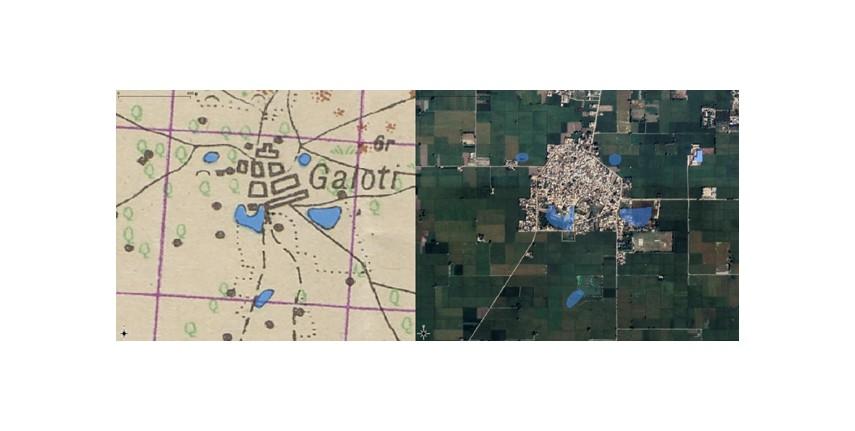
Submitted by K.L. Hlaba on Fri, 16/04/2021 - 14:22
Dr Cameron A. Petrie and Dr Adam S. Green describe how their team adapted their research due to COVID-19.
The archaeology component of the TIGR2ESS Project made a strong start in 2020, building from the impetus provided by the TwoRains Project. India and UK members of Flagship Project 4 were invited to attend a stakeholder consultation with farmers and policy-makers in Ludhiana (Punjab, India) to discuss the potential of restoring village ponds to use in agriculture. Pond-use has a deep history in the region – going back to the Indus Civilisation – and this water management strategy has the potential to contribute to the alleviation of current stresses on ground water. We also joined a project-wide general assembly in Hyderabad, but our subsequent plans for the year were impacted by the pandemic. Although fieldwork was not possible, the team conducted GIS-based investigations of the deep history of surface water use that complement the policy-engagement initiatives. An article outline a framework for these initiatives was published in Environmental Research Letters, and additional academic and impact outputs are currently in preparation. In the face of the pandemic, the TIGR2ESS team found itself in a unique position to communicate with farmers as they adapted to the profound challenges brought about by India’s lockdown. The team prepared and conducted a telephonic survey with farmers, which helped establish that smallholders were hit particularly hard by the crisis, and made it possible to identify policies for building resilience in the face of crisis.
Text and image supplied by the authors.
Image: Ponds visible on a historic map, and a satellite image showing the loss of these water bodies.

